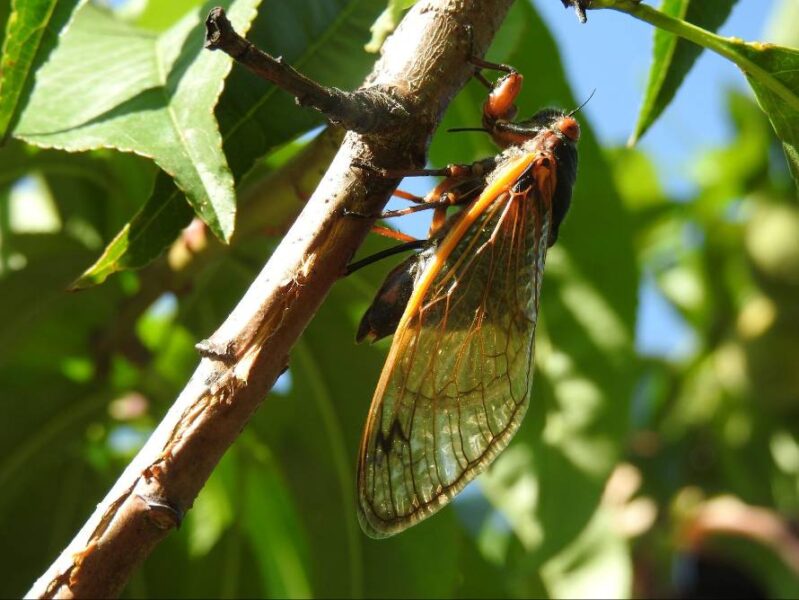Get ready for a once-in-a-lifetime event! Two different broods of cicadas, Brood XIX and Brood XIII, are set to emerge from the ground at the same time. This hasn’t happened since the 1800s. Virginia Tech entomologist Doug Pfeiffer explains that not everyone will get to see this amazing sight.
When and Where Will They Emerge?
“Beginning anytime between late April to June, Brood XIX and Brood XIII will emerge in 17 states from the Southeast to the Midwest,” said Pfeiffer. “The timing all depends on soil temperatures. Urban development also affects where we will see cicadas. These insects need trees–hosts longed-lived enough to support multiple generations of 13-year life cycles.”
The Difference Between Annual and Periodical Cicadas
Unlike annual cicadas that come out every summer, these periodical cicadas only emerge every 13 or 17 years. Annual cicadas can be found all over the world, but periodical cicadas are only found in North America. Brood XIII is expected to emerge in the Midwest, while Brood XIX will be seen across the South. Illinois is where the two broods will overlap. You can tell the difference between annual and periodical cicadas by their color. Annual cicadas are black and green, while periodical cicadas are black, red, and orange.
What to Expect During the Emergence
“The first sign that cicadas are coming are holes in your lawn, and then that distinctly loud humming will begin before they mate and die,” Pfeiffer said. “All of this lasts anywhere from four to six weeks.”
Although their sound can be very loud and there will be a lot of them, cicadas are good for the environment and won’t harm humans or pets. “They aerate the soil and periodically supply large pulses of nutrients into the soil. They are non-toxic and provide food for many animals.”
Protecting Your Plants
Pfeiffer warns that you’ll want to protect your plants during the cicada emergence. “The main concern is young fruit trees and grapevines. Cicadas lay eggs in twigs so it is a good idea not to plant fruit trees a year or so before a known emergence.” He suggests using netting to protect trees while the adult cicadas are active. “Insecticides can be applied to protect trees from egg-laying, but the effective materials are broad spectrum and the pest manager will have to be watchful for outbreaks of secondary pests.” He said repeated sprays will likely be necessary. “Recent research has indicated that adult cicadas feed on plant sap, but cicadas are generally not a concern for home gardeners.”

